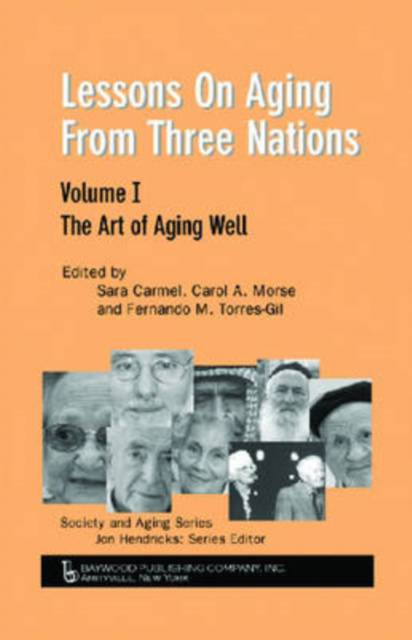
- Retrait gratuit dans votre magasin Club
- 7.000.000 titres dans notre catalogue
- Payer en toute sécurité
- Toujours un magasin près de chez vous
- Retrait gratuit dans votre magasin Club
- 7.000.0000 titres dans notre catalogue
- Payer en toute sécurité
- Toujours un magasin près de chez vous
Lessons on Aging from Three Nations
The Art of Aging Well
Sara Carmel, Carol A Morse, Fernando Torres-Gil, Jon Hendricks
181,95 €
+ 363 points
Format
Description
The demographic revolution - the aging of societies has become a worldwide phenomenon, affecting governments, economies, social trends, relationships amongst nations, and most of all, the elderly themselves and their families. The pace of aging differs amongst nations, however, as do the solutions for the new social needs and the rate of addressing them. Although no two nations are alike, one way for dealing effectively with new social demands is to learn from the creativity, achievements and failures of other societies. This volume examines the issues confronting global aging through the prism of three multicultural nations: the United States, Israel and Australia. All three countries face the challenges of coping with continued immigration, dramatic social and demographic change and the growing nexus of social diversity along with again but have established different infrastructures of programmes, services and public benefits for the older citizens. While highlighting their societies' experiences, the scholars contributing to this book discuss international achievements in meeting the ultimate challenge of aging well, as well as limitations and unmet needs, focusing on the art of coping with growing old, adapting to health challenges, and making a place for older persons in society. The authors not only identify the insights, indicators, and trends that may affect both developed and developing worlds, but also offer practical solutions for enhancing personal and societal well being, thus making the most of this demographic revolution. This is the first of two edited volumes on aging and caregiving. The second volume focuses on challenges and concerns for families, policy makers and governments in caregiving and end-of-life issues. In this way the editors hope to provide clues and suggestions for future research, policies and practices in the comparative study of global aging. This book will be of interest to students of gerontology and geriatrics; those working in nongovernmental organizations - private, for-profit and non-profit agencies, including voluntary charitable and religious groups, those working in national regional and local governments; and all general readers intrigued with the aging of societies and longevity.
Spécifications
Parties prenantes
- Auteur(s) :
- Editeur:
Contenu
- Nombre de pages :
- 200
- Langue:
- Anglais
- Collection :
Caractéristiques
- EAN:
- 9780895033697
- Date de parution :
- 01-05-06
- Format:
- Livre relié
- Format numérique:
- Genaaid
- Dimensions :
- 163 mm x 238 mm
- Poids :
- 476 g

Les avis
Nous publions uniquement les avis qui respectent les conditions requises. Consultez nos conditions pour les avis.






